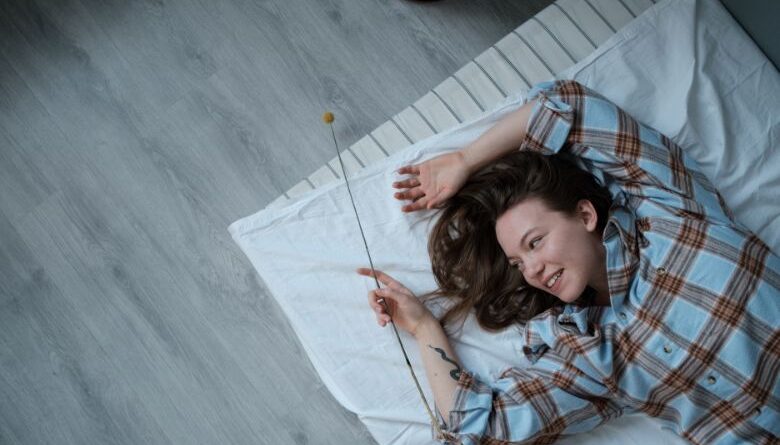The Impact of Blue Light on Sleep and Ways to Reduce Exposure
The Impact of Blue Light on Sleep and Ways to Reduce Exposure
In today’s modern world, we are surrounded by screens emitting blue light, from smartphones and laptops to LED lights. While blue light is beneficial during the day as it boosts attention, mood, and reaction times, its prevalence in the evening can have adverse effects on our sleep. In this article, we will explore the impact of blue light on sleep and discuss effective ways to reduce exposure, ensuring a good night’s rest.
What is Blue Light?
Blue light is a short-wavelength, high-energy light that is a natural component of sunlight. It is also emitted by various artificial sources, primarily electronic devices with LED screens and energy-efficient lighting. The blue light spectrum has been shown to influence our body’s internal clock, the circadian rhythm, which regulates our sleep-wake cycle.
The Effects of Blue Light on Sleep
Disruption of Circadian Rhythm
Exposure to blue light in the evening can disrupt our circadian rhythm. The bright light signals to our brain that it’s still daytime, suppressing the production of the sleep hormone melatonin and making it harder to fall asleep.
Suppression of Melatonin
Melatonin plays a crucial role in promoting sleepiness and regulating the sleep-wake cycle. Blue light exposure, especially before bedtime, can significantly reduce melatonin levels, leading to difficulties in falling asleep and experiencing restful sleep.
Impact on Sleep Quality
Not only does blue light affect the timing of sleep, but it can also reduce the overall quality of sleep. The disruption in circadian rhythm and suppressed melatonin levels can lead to fragmented sleep patterns and less restorative sleep.
Sources of Blue Light Exposure
Digital Devices
Smartphones, tablets, laptops, and computer screens emit significant amounts of blue light. Prolonged use of these devices, especially in the evening, can negatively impact sleep patterns.
LED Lighting
LED lights, commonly used for energy efficiency, also emit blue light. Overexposure to LED lighting, especially during the night, can interfere with our ability to fall asleep and maintain restful sleep.
Tips to Reduce Blue Light Exposure
Night Mode Settings
Most electronic devices now come with a “Night Mode” or “Blue Light Filter” feature. Enabling this mode reduces blue light emission, making the screen warmer and less disruptive to sleep.
Blue Light Filters
Apart from the built-in features, various software applications and screen protectors offer blue light filters. Installing these can further reduce blue light exposure, especially during evening usage.
Using Amber-Tinted Glasses
Wearing amber-tinted glasses in the evening can help block blue light and prevent its interference with melatonin production, leading to improved sleep quality.
Limiting Screen Time Before Bed
Setting boundaries on screen time before bedtime can help reduce overall blue light exposure and improve sleep patterns. Instead, engaging in relaxing activities like reading or meditating can promote better sleep.
Adjusting Lighting in the Evening
Switching to warmer, dimmer lights in the evening can minimize blue light exposure. Using lamps with soft, warm-colored bulbs can create a more sleep-friendly environment.
The Importance of Sleep for Health
Quality sleep is crucial for overall health and well-being. Proper rest allows the body to repair, recharge, and maintain optimal cognitive and physical function.
Impact of Blue Light on Children and Adolescents
Children and adolescents are particularly susceptible to the effects of blue light on sleep. Parents should monitor their screen time and encourage healthy sleep habits to support their development and growth.
Blue Light and Eye Health
Prolonged exposure to blue light can strain the eyes and potentially contribute to digital eye strain. Taking breaks from screens and using blue light filters can help protect eye health.
The Link Between Blue Light and Chronic Health Issues
Recent research suggests that prolonged exposure to blue light may be linked to certain chronic health issues such as obesity, diabetes, and cardiovascular diseases. While more research is needed in this area, it highlights the importance of managing blue light exposure.
Blue Light and Mental Health
Disrupted sleep patterns due to excessive blue light exposure can also impact mental health, potentially leading to mood disorders and increased anxiety levels.
How Businesses are Addressing Blue Light Concerns
Companies are increasingly acknowledging the impact of blue light on sleep and overall health. Many are implementing blue light reduction strategies in their products, such as blue light filters and night mode settings.
Conclusion
In conclusion, while blue light is beneficial during the day, its overexposure during the evening can disrupt our sleep-wake cycle and negatively impact our health. Taking steps to reduce blue light exposure, such as using night mode settings, blue light filters, and limiting screen time before bed, can significantly improve sleep quality and overall well-being.
FAQs
- Does blue light affect everyone’s sleep equally? Different individuals may have varying sensitivities to blue light, but prolonged exposure can impact most people’s sleep.
- Are there any long-term health risks associated with blue light exposure? Current research suggests potential links between chronic health issues and blue light exposure, but further studies are needed to establish concrete connections.
- Can blue light filters be used on all types of devices? Yes, blue light filters are available for most electronic devices, including smartphones, laptops, and tablets.
- Are there any other benefits of reducing blue light exposure? Yes, reducing blue light exposure can also alleviate eye strain and improve overall eye health.
- Is it safe for children to use electronic devices with blue light filters? When used appropriately, blue light filters can be safe for children and may even be beneficial in promoting better sleep patterns.
- Practicing Self-Compassion: Being Kind to Yourself





Pingback: A Guide to Mindful Breathing Techniques | UTHSI 2023